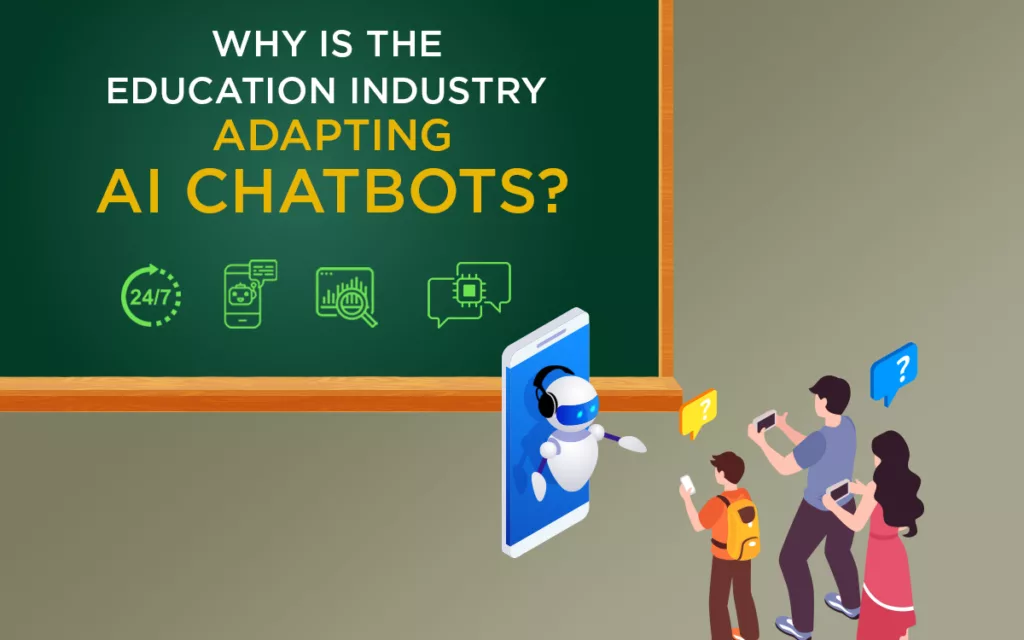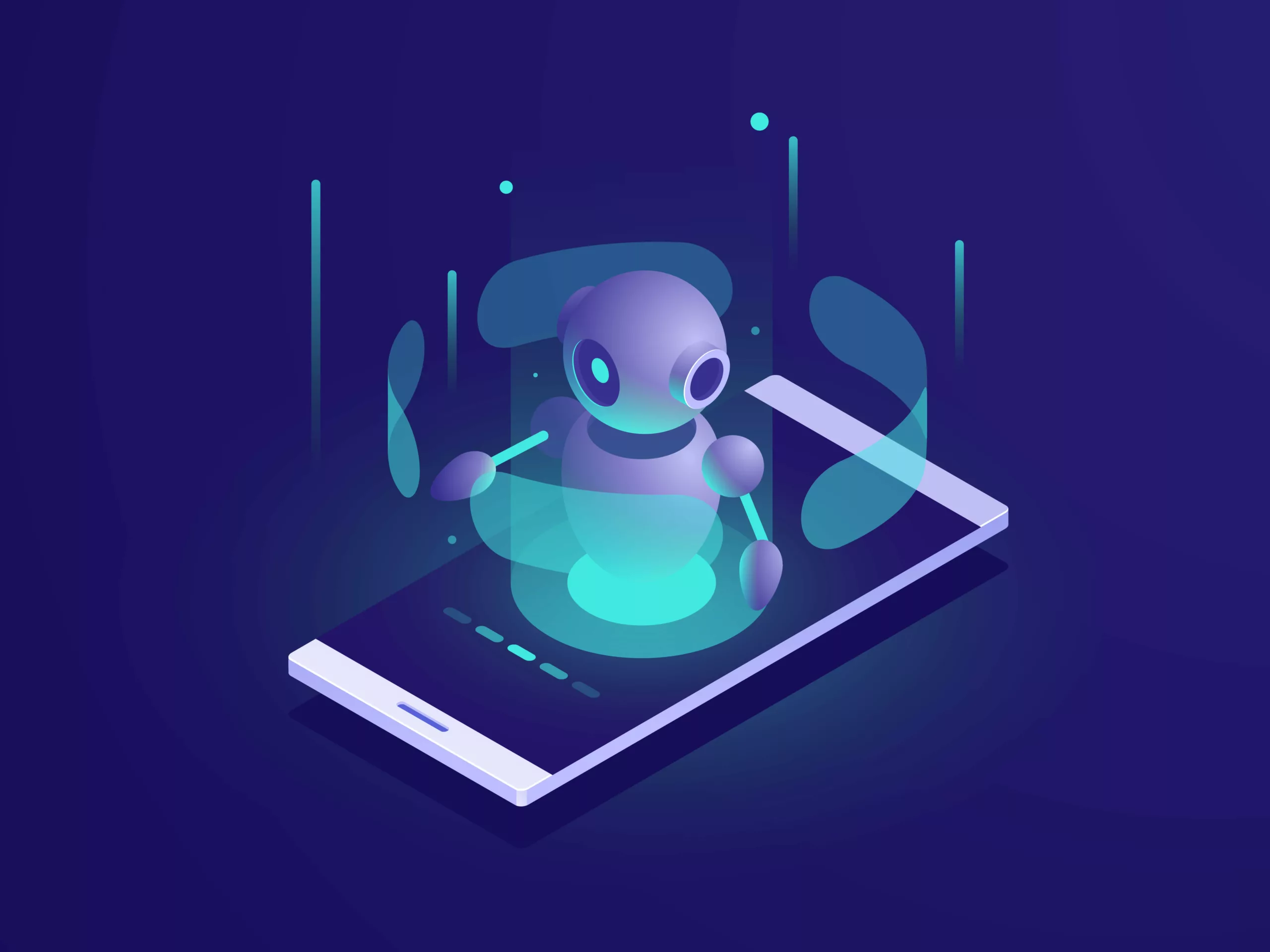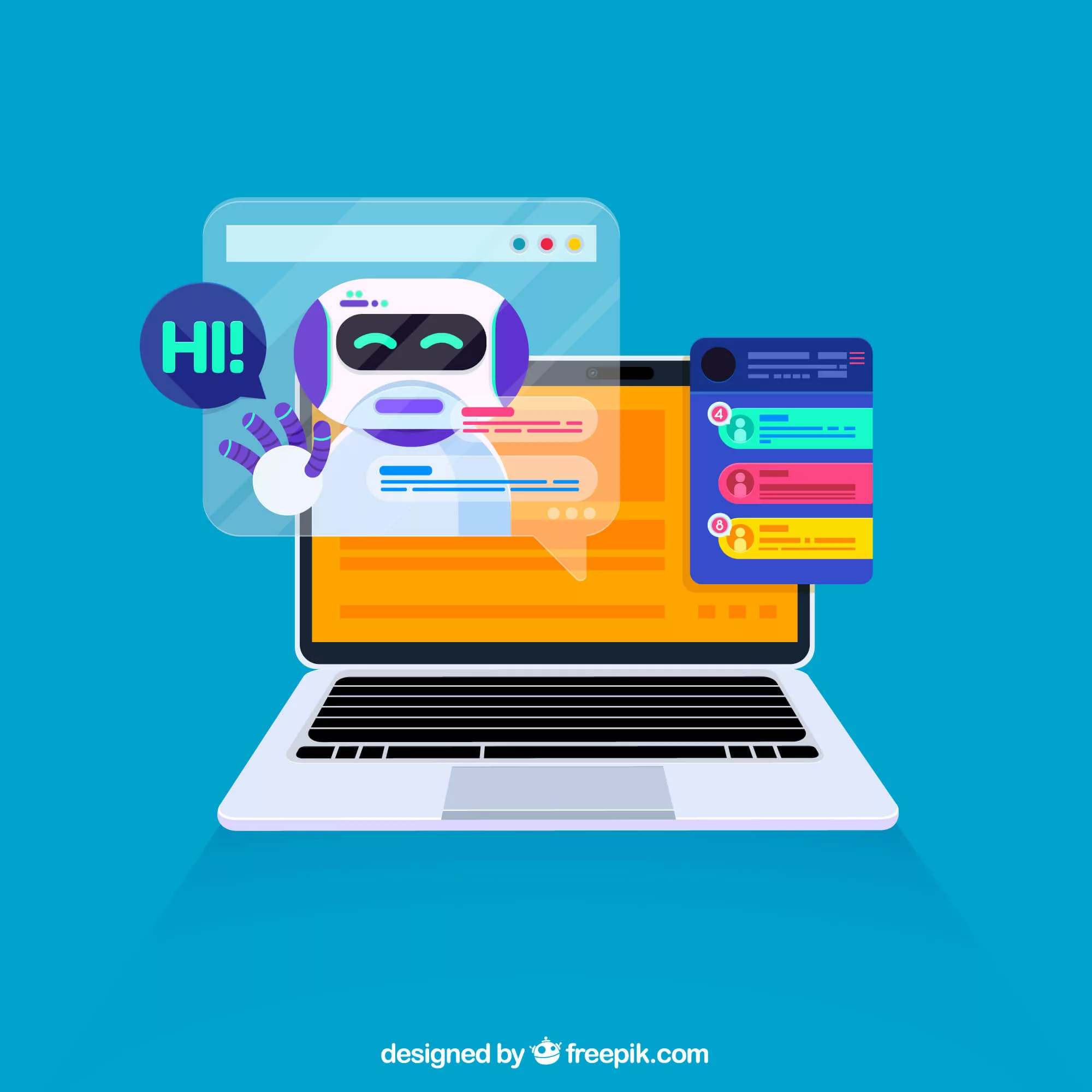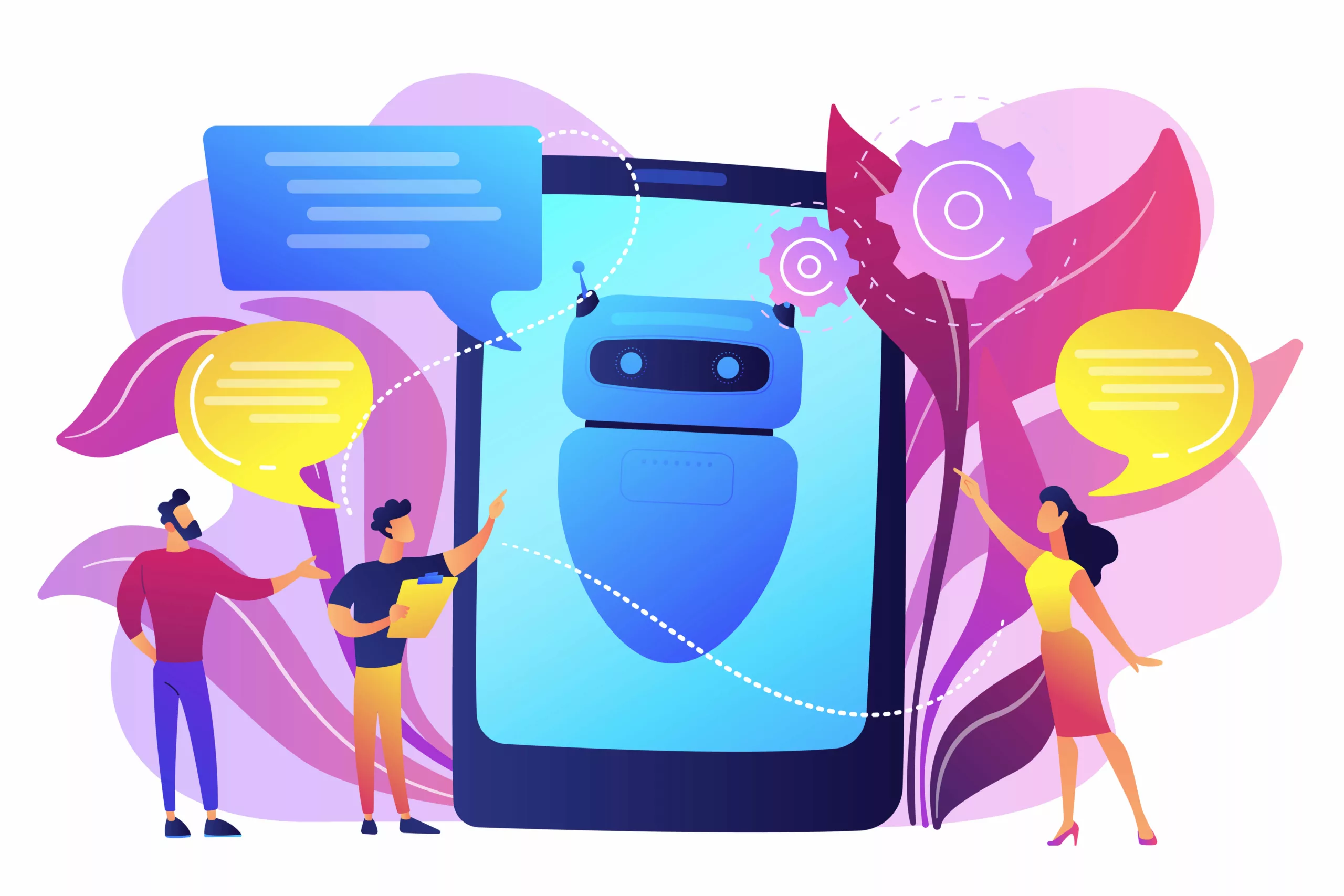Chatbots are becoming an integral part of education technology. Recent research by Fryer and Carpenter surveyed 211 students on their experience chatting with an education-focused chatbot. The results were overwhelmingly positive; students enjoyed the interaction and felt comfortable conversing with the bot. This indicates that chatbots in education can facilitate productive communication between students and teachers.
Artificial intelligence is transforming education through advanced solutions that support institutions’ digital growth. The demand for AI-enabled online learning platforms continues to rise, with the AI in education market projected to surpass $20 billion in revenue by 2027
AI Chatbots In Education: The Need Of The Hour.
In a 2016 interview, Microsoft founder Bill Gates pointed out the relevance of AI in improving the quality and effectiveness of personalized teaching approaches.
“The idea that you could talk to a [virtual] advisor that would understand different misconceptions and arbitrary linguistics around it—that’ll certainly come in the next decade. And they’ll be a very nice supplement, says Bill Gates.
Truly, after almost half a decade, AI chatbots are being instrumental in helping institutions provide interactive, streamlined, and personalized learning environments for students.
Conversational AI, or AI chatbots, is a subset of AI solutions. It is constantly explored to fill the gaps between teaching and learning and achieve seamless education at all levels.
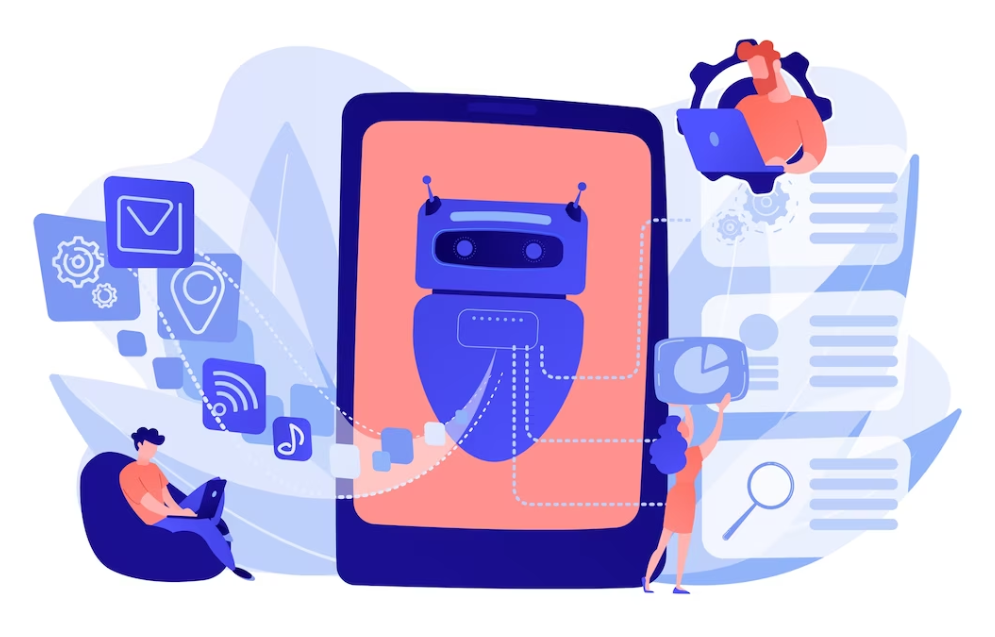
How do AI Chatbots Help In Teaching And Learning?
AI chatbots use natural language processing (NLP) to decode the intent and keywords according to a specific algorithm and perform a set of functions.
NLP is among the most promising branches of AI, which uses data science to facilitate the interaction between humans and computers. The effectiveness of NLP in making computers as smart as people fueled its growth, with the NLP market anticipated to reach $28.6 billion in 2026.
The AI chat bot processes a set of commands to understand the questions and offer appropriate answers to them. It can either be in the form of text or audio-video, pictures, etc. In the educational realm, this proves to be an interactive way for institutions, both online and offline, to create intuitive and interactive classrooms.
What Are the Benefits of Ai Chatbots for Students?
New-age technology has seemingly replaced the physical library with search engines and created virtual classrooms that have students from different parts of the world.
Apart from these visible technological advancements, conversational AI is also driving the future of eLearning and has already shown signs of transformation in the education realm. As students gain more easy access to high-speed internet and mobile devices, the use cases of such modern technology also increase.
Let us now look at how AI chatbots are changing the landscape of the traditional education system.
1. Enhanced Personalized Learning
Personalized learning promotes self-advocacy skills in students. It helps them to focus on their flaws and empower their skills. It involves creating a learning structure that is tailored to each student’s abilities in a way that motivates them. This way, teachers can ensure every student learns together, but at their own pace.
However, in a traditional classroom, providing such assistance can be an excruciating task for the teachers. With AI-enabled chatbots, it is easy to optimize teaching as per the learning abilities of each student. It ensures every student continues to follow the curriculum, but at their own pace.
AI chatbots interact with students and understand their specific needs via a set of standard text, audio, and video messages. These chatbots use their inferences to create a personalized curriculum that matches their needs.
2. Smart and Quick Feedback
Feedback, whether from a student or a teacher, is effective only if it specifically addresses the areas of improvement. Conventionally, feedback would be in the form of written applications or online forums that take time to process and produce relevant results.
With the power of AI, an interactive way to understand the point of view of a student or teacher through surveys is now possible. The AI chatbot automatically cumulates and analyzes the responses and publishes the results, making the whole process simple and fast. It provides results on time that the institutions can use to amend their teaching or administrative ways.
For students, detailed feedback from teachers is a comprehensive way to explore their inner strengths and flaws as learners. For teachers, such feedback is an effective means to understand their student’s expectations and improve their teaching methods accordingly.
3. Better Student Engagement
Effective student engagement involves developing the knowledge-absorbing skills of students by imbibing a positive thirst to learn new things. AI chatbots break the long lectures into small text or interactive media messages so that it looks like a virtual chat room. This way, the tedious lecturers transform into an interactive learning experience.
Many universities have deployed chatbots to streamline student-teacher communication.
For instance, the University of Murcia, Spain rolled out AI chatbots to answer queries from students regarding matters of campus and field of study. The chatbot successfully answered, with 91% accuracy, around 38,708 questions.
4. Better Teaching Assistance
AI chatbots are dedicated virtual teaching assistants that are available 24/7 to help students with clearing concepts. It also helps teachers evaluate test papers and detect plagiarism and grammar issues.
With AI chatbots, teachers can optimize their tasks and leverage their time to create strategies that impart quality education to their students.
5. Better Student Support
As technology advances, AI chatbots are being trained to provide more personalized counseling sessions to students and guide them to choose the best course. The AI chatbots mainly focus on three factors responsible for higher student persistence, as perceived by Vincent Tinto, University Professor of Sociology (emeritus) at Syracuse University: students’ self-efficacy, sense of belonging and perceived value of the curriculum.
AI chatbots with human monitoring can also be used to improve on-campus mental health counseling and help students manage their stress efficiently.
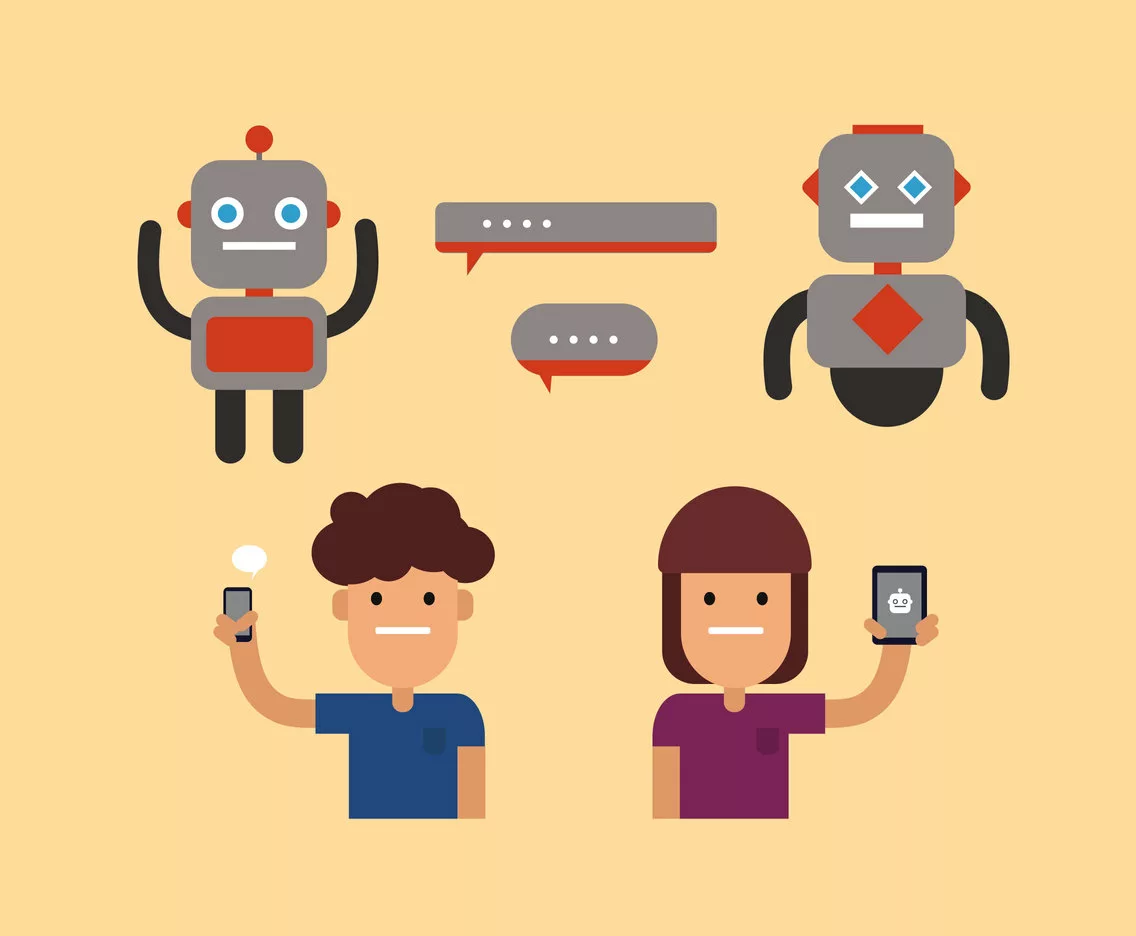
Bottom Line
The education industry is now witnessing a major paradigm shift from traditional ways of teaching. Even though no AI chatbot can replace a passionate and dedicated teacher, it can surely improve the quality of the overall learning experience.
Choosing the right chatbot is crucial to determining the effectiveness of AI-based tutoring. eBotify has all the elements that make it a perfect choice to deploy as a virtual administrative, teaching, and student assistant.
Contact us with your requirements, and our technical team will provide the solutions for you right away!

